Having covered the adventures of Qui-Gon and Obi-Wan Kenobi, and then the adventures of Sith Lord Darth Maul, I am now in the final stage of my "Prelude to Episode I: The Phantom Menace" coverage. In this post, I will cover a handful of stories that did not fit elsewhere, specifically:
I read the two comics in Omnibus: Rise of the Sith. I read Darth Plagueis in hardcover and played Starfighter on my PC, having just purchased it from GOG.com. It is worth noting that, at the time "Republic" was simply called "Star Wars"; it was renamed Republic in its 46th issue in 2002. I will be referring to it as Republic in all of my posts, to differentiate it from other comics named simply Star Wars (others having been launched in 1977, 2013, and 2015).
The novel Darth Plagueis tells the story of the Sith Master who taught Darth Sidious (the main villain of the prequel trilogy). We see how he manipulates everything and everyone so that he and his apprentice can eventually take control over the Galaxy, as well as his search for eternal life. It ends during the events of Episode I, after learning that his most important experiment -- controlling the Force in order to create life -- resulted in the birth of Anakin Skywalker.
In the comic mini-series Jedi Council: Acts of War, we learn of an aggressive species called the Yinchorri, who have been attacking Republic worlds near their system. After the Yinchorri, who are immune to Jedi mind tricks, kill a Jedi and her apprentice, the Council sends a team to attack the Yinchorri military and disrupt its ability to wage war.
In the first arc of the Republic comic series, an arc entitled Prelude to Rebellion, we see Jedi Knight Ki-Adi-Mundi on his homeworld of Cerea. While we will still learn that Jedi are not allowed to marry or have children, Ki-Adi-Mundi is exempted, as on his planet the gender ratio is badly out of balance, so all males must do their part to propagate the species. On Cerea, technology is rare, but criminals are trying to convince the younger generation to abandon their way of life and accept technology, so that the criminals (including Jabba the Hutt) may exploit the planet's resources.
Issues 4-6 of Republic features a backup story called Vow of Justice. This was a story of young Ki-Adi-Mundi who returned to his homeworld, only to find that raiders that once attacked his family every year were still in operation. He must fight them off, being careful to distinguish justice from revenge.
In Starfighter, you play as one of three characters: Rhys, a rookie pilot for the Naboo Security Forces; Vana, a mercenary working jobs for the Trade Federation; or Nym, a pirate striking against the Trade Federation. Though first working in opposition to each other, Naboo is invaded midway through the game and so the three characters must work together to destroy Trade Federation droid factories, equip the Naboo resistance, and eventually help destroy the Droid Control Ship orbiting the planet.
I mentioned in my last post that I had views on the Darth Plagueis novel. Overall, I think the novel is extremely well written, and the story of Plagueis is a fascinating one. However, I was annoyed by one specific fact: that Darth Sidious aka Palpatine is actually the Sith apprentice in Episode I. Plagueis, still alive and scheming, remains the Master until after the story of Episode I had concluded. Sidious was the apprentice, and Maul was simply a tool on hand, allowed to believe he was Sidious's apprentice (which he did believe, according to the End Game short story covered in my previous post). That undermines Sidious in many ways. He did not ascend to the position of Supreme Chancellor by grace of his own machinations; he was at least in part elevated by his master.
Following Maul's death in Episode I, Mace Windu famously asked "Which have we destroyed? The Master or the Apprentice?" In this book, we learn that Maul was neither. This is disappointing, especially given how his novels and comics establish him to be a cunning and brutal warrior.
Though I've treated these all as prelude stories, Darth Plagueis and Starfighter both end during the events of The Phantom Menace. A careful chronological read-through becomes difficult, which is why I'm glad to have grouped my stories thematically. I have no desire to stop reading between individual chapters of a book. It's already enough that I've decided to break apart video game campaigns as I have. But even though their action begins before Episode I, in retrospect, these stories might be best enjoyed afterward.
Darth Plagueis also fairly comprehensively gave new perspectives to stories seen earlier. Indeed, almost every story previously referenced, plus several I have yet to cover, are revisited from the point of view of Darths Plagueis and Sidious. Even Maul: Lockdown, which would not be written until later, is referenced (in that the nuclear weapon used to attack Plagueis's fortress is acquired in that novel). Especially given the fact that novels written pre-2005 never referred to Palpatine and Sidious as the same person, this reflection on the Sith plan at work was enthralling.
Starfighter was a fun game that let you pilot starfighters in the prequel era, using a control scheme similar to the Rogue Squadron games, which were very popular at the time. The missions occasionally didn't flow together very well, and it could have benefited from some more cutscenes elaborating on the story, but overall it was fun to fly as a Naboo fighter or a pirate bomber against the Trade Federation.
Jedi Council: Acts of War and the first arc of Republic were good stories meant to showcase the various background characters we see in The Phantom Menace: Jedi Council members such as Ki-Adi-Mundi (the conehead), Mace Windu (Samuel L. Jackson), Plo Koon (with the face mask), Saesee Tiin (the one with horns), Oppo Rancisis (the snake with a long beard), Yaddle (the female Yoda) and others. The stories were entertaining, but they will not have any lasting implications.
Having now completed by read-through of the Episode I prelude stories, I believe I can give a definitive list of stories to read before you next re-watch The Phantom Menace. I recommend reading the following stories, in the following order:
Follow @C_Andrew_H
- Darth Plagueis (novel by James Luceno, 2012)
- Jedi Council: Acts of War 1-4 (comic by Randy Stradley, 2000)
- Republic 1-6 (comic arc by Jan Strnad, 1998-1999)
- Prelude to Rebellion parts 1-6
- Vow of Justice parts 1-3
- Starfighter (video game by LucasArts, 2001)
I read the two comics in Omnibus: Rise of the Sith. I read Darth Plagueis in hardcover and played Starfighter on my PC, having just purchased it from GOG.com. It is worth noting that, at the time "Republic" was simply called "Star Wars"; it was renamed Republic in its 46th issue in 2002. I will be referring to it as Republic in all of my posts, to differentiate it from other comics named simply Star Wars (others having been launched in 1977, 2013, and 2015).
Story:
The novel Darth Plagueis tells the story of the Sith Master who taught Darth Sidious (the main villain of the prequel trilogy). We see how he manipulates everything and everyone so that he and his apprentice can eventually take control over the Galaxy, as well as his search for eternal life. It ends during the events of Episode I, after learning that his most important experiment -- controlling the Force in order to create life -- resulted in the birth of Anakin Skywalker.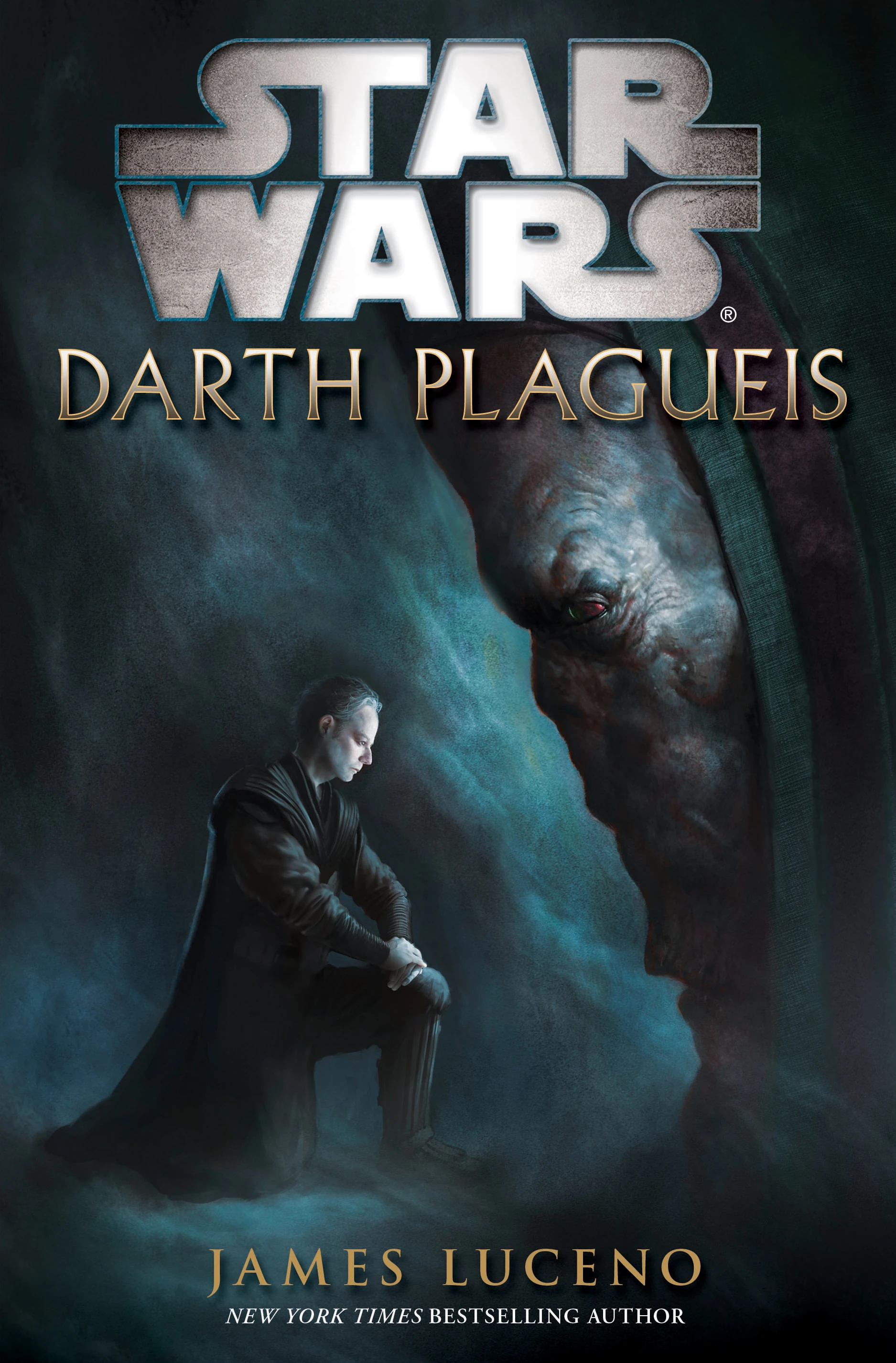 |
| The title character and Palpatine on the cover of Darth Plagueis. Image from Wookieepedia. |
In the comic mini-series Jedi Council: Acts of War, we learn of an aggressive species called the Yinchorri, who have been attacking Republic worlds near their system. After the Yinchorri, who are immune to Jedi mind tricks, kill a Jedi and her apprentice, the Council sends a team to attack the Yinchorri military and disrupt its ability to wage war.
In the first arc of the Republic comic series, an arc entitled Prelude to Rebellion, we see Jedi Knight Ki-Adi-Mundi on his homeworld of Cerea. While we will still learn that Jedi are not allowed to marry or have children, Ki-Adi-Mundi is exempted, as on his planet the gender ratio is badly out of balance, so all males must do their part to propagate the species. On Cerea, technology is rare, but criminals are trying to convince the younger generation to abandon their way of life and accept technology, so that the criminals (including Jabba the Hutt) may exploit the planet's resources.
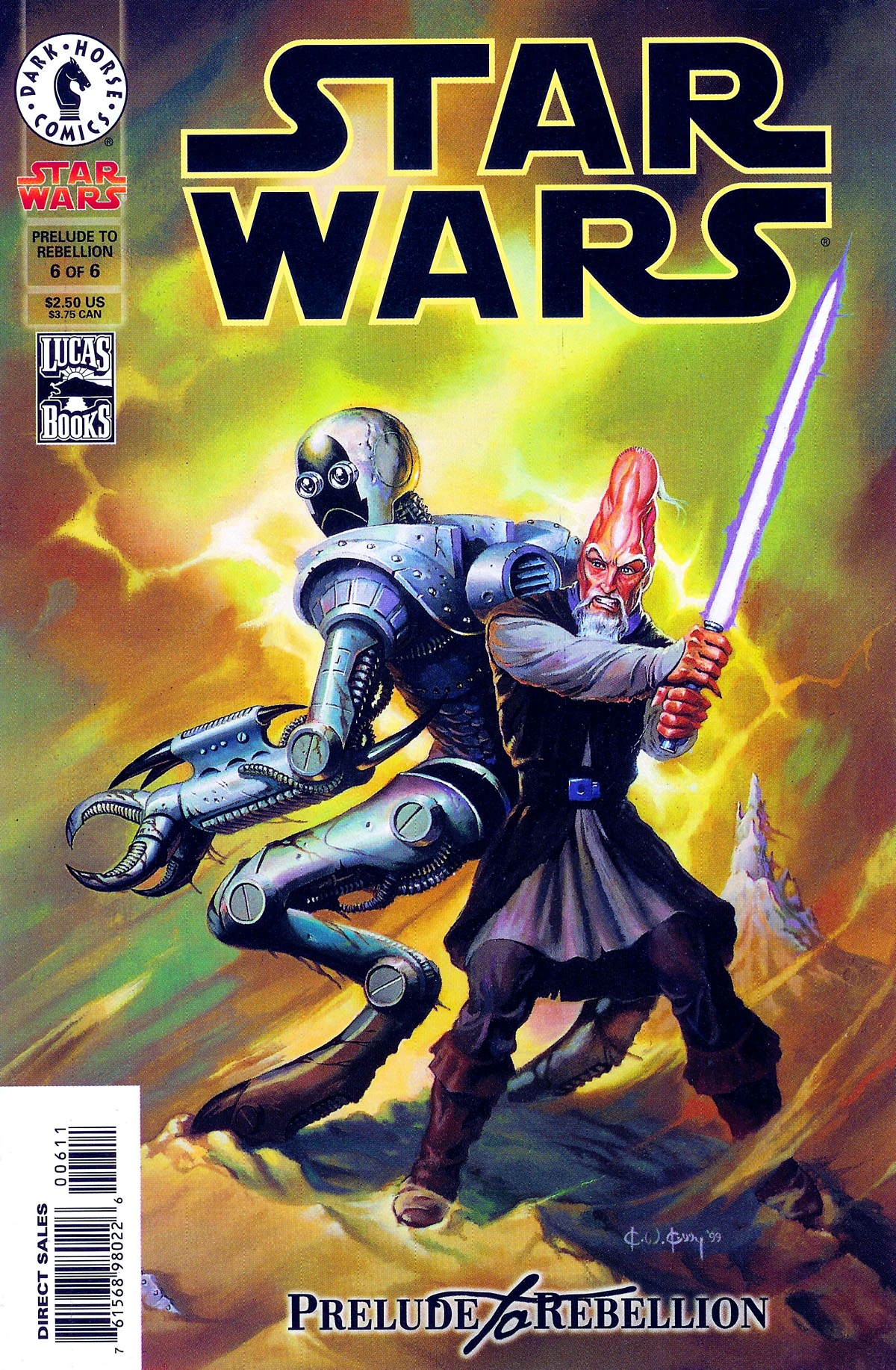 |
| Cover of Star Wars: Republic #6. Image from Wookieepedia. |
Issues 4-6 of Republic features a backup story called Vow of Justice. This was a story of young Ki-Adi-Mundi who returned to his homeworld, only to find that raiders that once attacked his family every year were still in operation. He must fight them off, being careful to distinguish justice from revenge.
In Starfighter, you play as one of three characters: Rhys, a rookie pilot for the Naboo Security Forces; Vana, a mercenary working jobs for the Trade Federation; or Nym, a pirate striking against the Trade Federation. Though first working in opposition to each other, Naboo is invaded midway through the game and so the three characters must work together to destroy Trade Federation droid factories, equip the Naboo resistance, and eventually help destroy the Droid Control Ship orbiting the planet.
Thoughts:
I mentioned in my last post that I had views on the Darth Plagueis novel. Overall, I think the novel is extremely well written, and the story of Plagueis is a fascinating one. However, I was annoyed by one specific fact: that Darth Sidious aka Palpatine is actually the Sith apprentice in Episode I. Plagueis, still alive and scheming, remains the Master until after the story of Episode I had concluded. Sidious was the apprentice, and Maul was simply a tool on hand, allowed to believe he was Sidious's apprentice (which he did believe, according to the End Game short story covered in my previous post). That undermines Sidious in many ways. He did not ascend to the position of Supreme Chancellor by grace of his own machinations; he was at least in part elevated by his master.Following Maul's death in Episode I, Mace Windu famously asked "Which have we destroyed? The Master or the Apprentice?" In this book, we learn that Maul was neither. This is disappointing, especially given how his novels and comics establish him to be a cunning and brutal warrior.
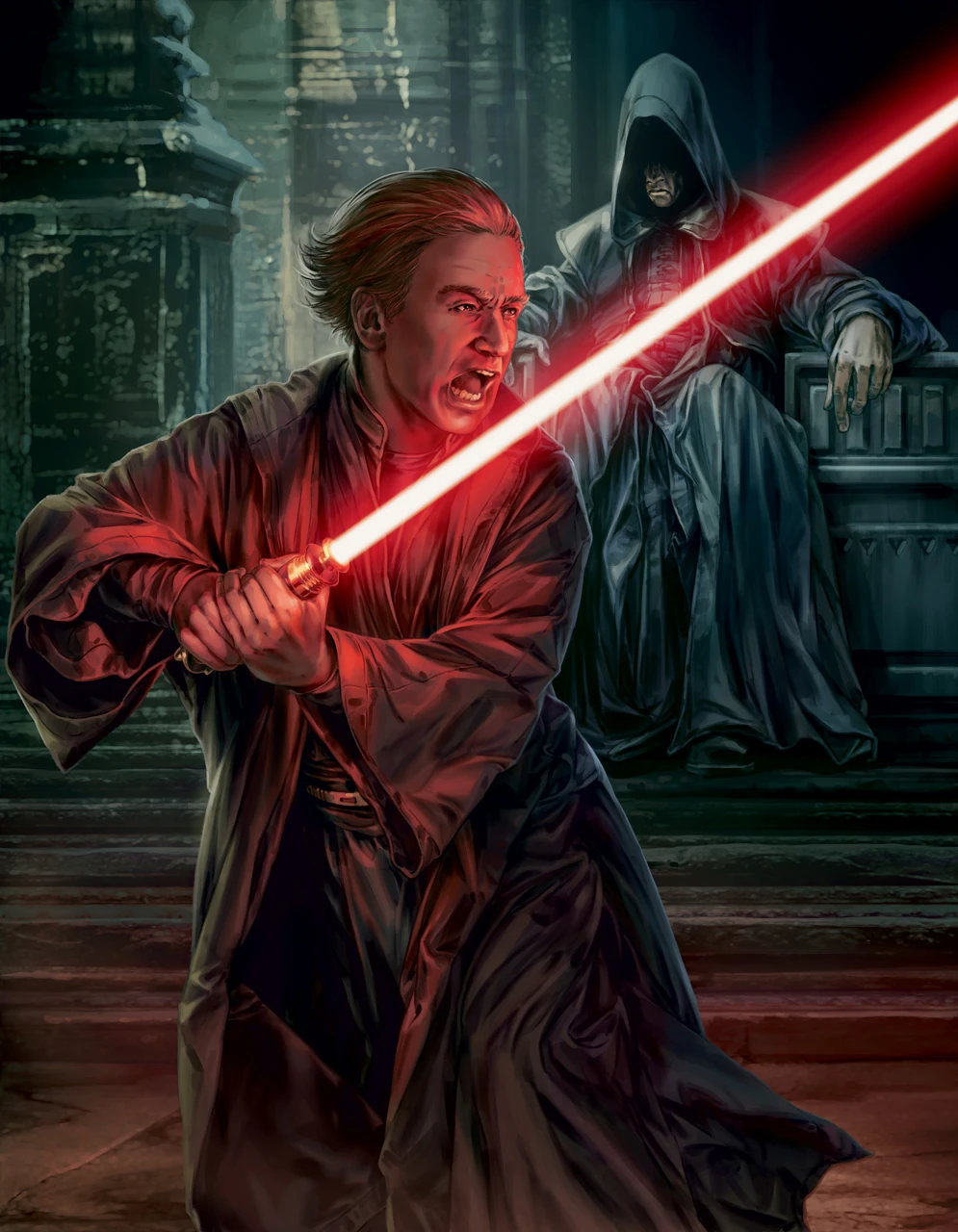 |
| Darth Plagueis training Darth Sidious, depicted in Jedi vs. Sith: The Essential Guide to the Force. Image from Wookieepedia. |
Though I've treated these all as prelude stories, Darth Plagueis and Starfighter both end during the events of The Phantom Menace. A careful chronological read-through becomes difficult, which is why I'm glad to have grouped my stories thematically. I have no desire to stop reading between individual chapters of a book. It's already enough that I've decided to break apart video game campaigns as I have. But even though their action begins before Episode I, in retrospect, these stories might be best enjoyed afterward.
Darth Plagueis also fairly comprehensively gave new perspectives to stories seen earlier. Indeed, almost every story previously referenced, plus several I have yet to cover, are revisited from the point of view of Darths Plagueis and Sidious. Even Maul: Lockdown, which would not be written until later, is referenced (in that the nuclear weapon used to attack Plagueis's fortress is acquired in that novel). Especially given the fact that novels written pre-2005 never referred to Palpatine and Sidious as the same person, this reflection on the Sith plan at work was enthralling.
Starfighter was a fun game that let you pilot starfighters in the prequel era, using a control scheme similar to the Rogue Squadron games, which were very popular at the time. The missions occasionally didn't flow together very well, and it could have benefited from some more cutscenes elaborating on the story, but overall it was fun to fly as a Naboo fighter or a pirate bomber against the Trade Federation.
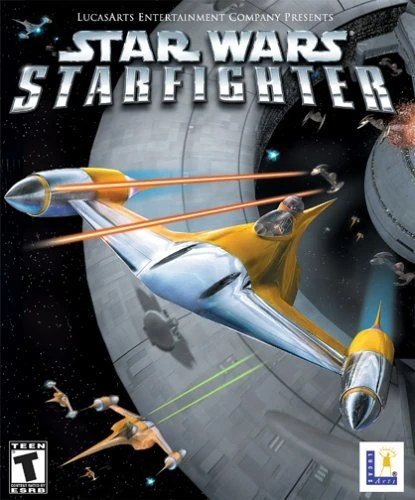 |
| Cover of Star Wars: Starfighter for PC. Image from Wookieepedia. |
Jedi Council: Acts of War and the first arc of Republic were good stories meant to showcase the various background characters we see in The Phantom Menace: Jedi Council members such as Ki-Adi-Mundi (the conehead), Mace Windu (Samuel L. Jackson), Plo Koon (with the face mask), Saesee Tiin (the one with horns), Oppo Rancisis (the snake with a long beard), Yaddle (the female Yoda) and others. The stories were entertaining, but they will not have any lasting implications.
Having now completed by read-through of the Episode I prelude stories, I believe I can give a definitive list of stories to read before you next re-watch The Phantom Menace. I recommend reading the following stories, in the following order:
- Darth Maul: Saboteur
- Cloak of Deception
- Jedi Council: Acts of War 1-4
- Darth Maul 1-4
- Darth Maul: Shadow Hunter
- Episode I: The Phantom Menace (film)
- End Game
- Darth Plagueis
This reading order gives you all necessary background on the characters and setting before (and immediately after) watching the first prequel movie. I'll give my thoughts on The Phantom Menace later, but at minimum I'll say that it benefits from the additional context provided in these prelude stories. Books and comics not listed here aren't bad, but aren't necessary.
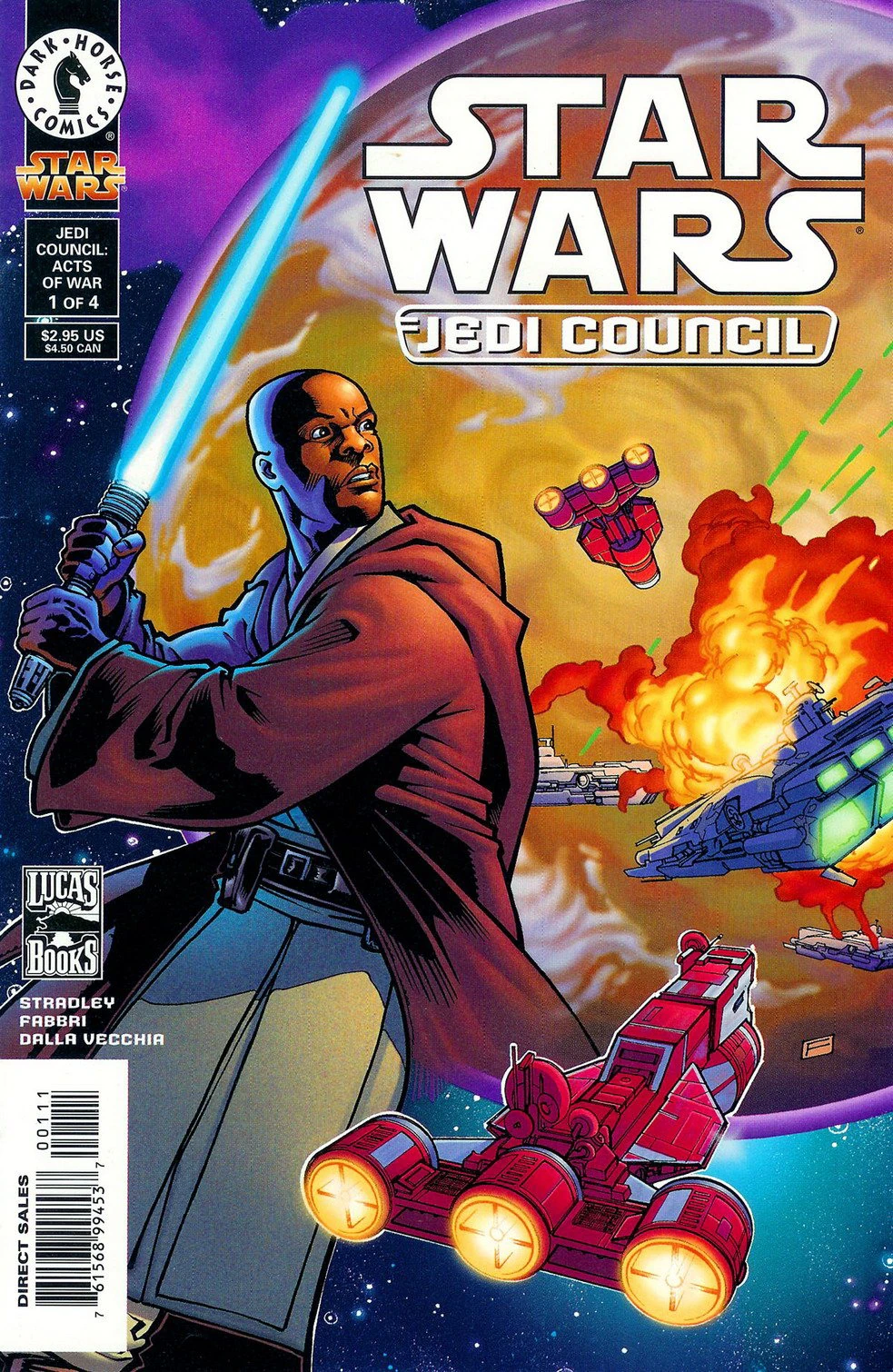 |
| Cover of Jedi Council: Acts of War #1. Image from Wookieepedia. |
Next:
With this post, I am ready to consume the various adaptations of Episode I: The Phantom Menace. However, I will first switch back to the New Canon to read all stories tied into Rogue One: A Star Wars Story, including adaptations and preludes.Follow @C_Andrew_H
Comments
Post a Comment